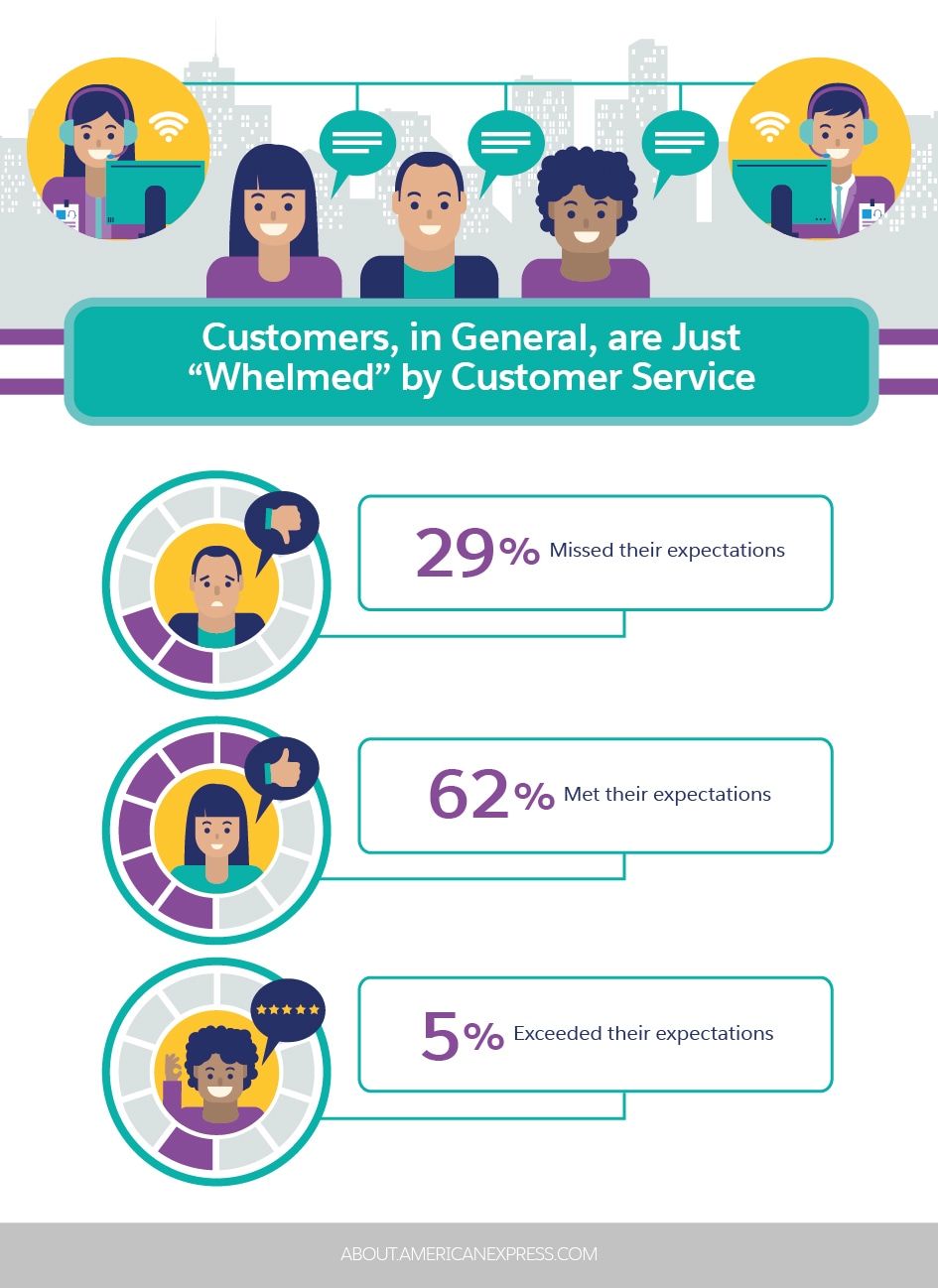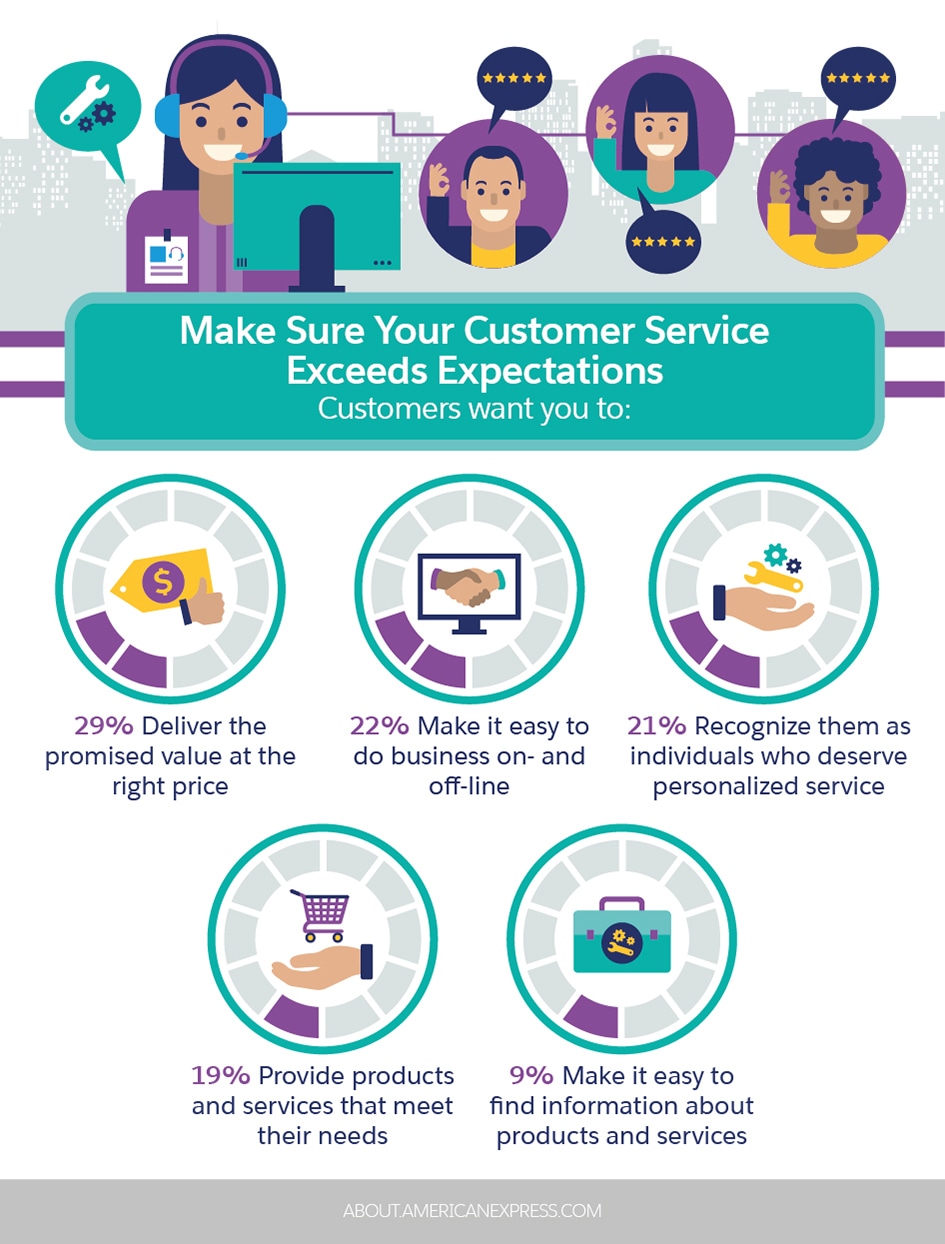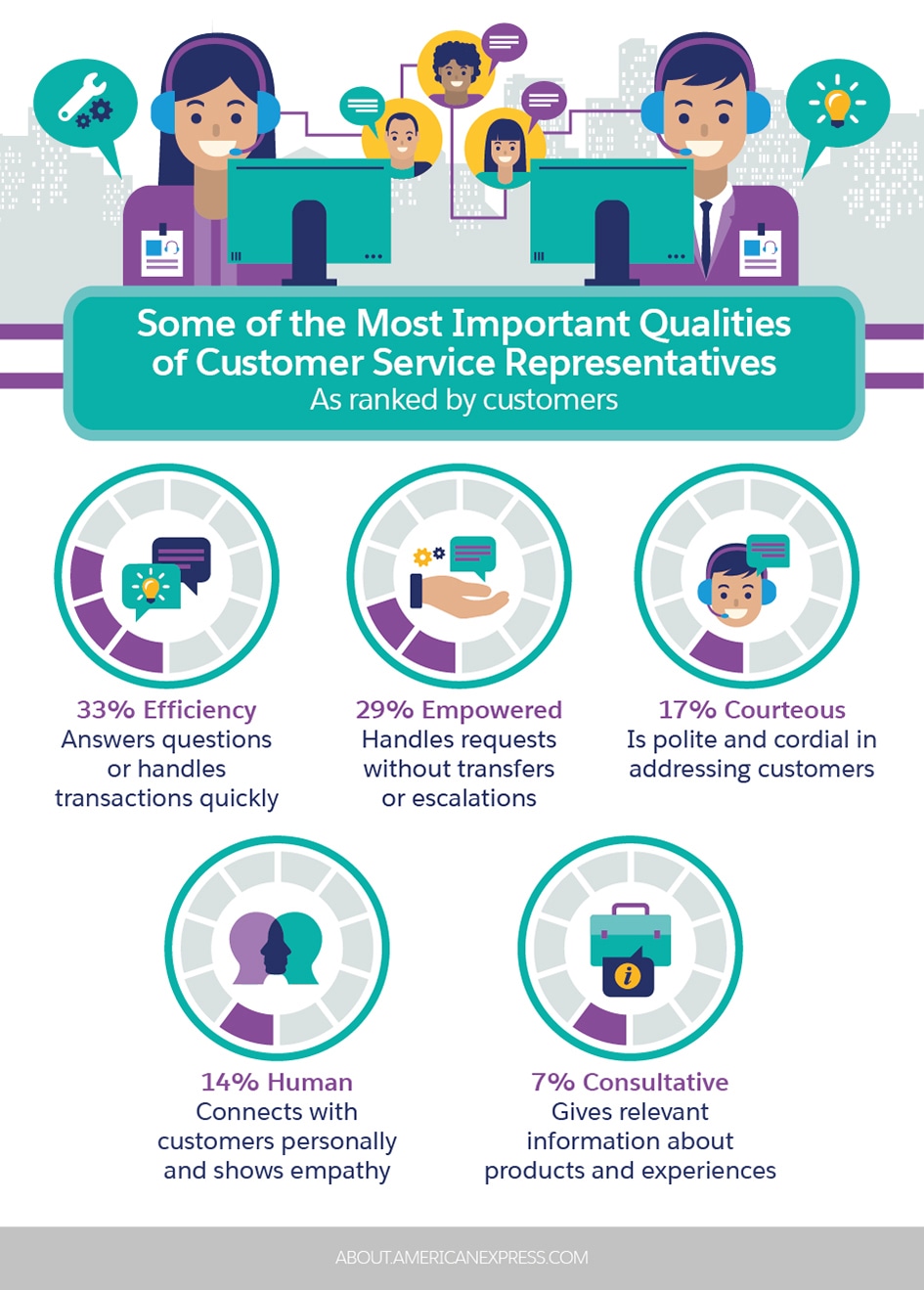Customer service skills list
Your List of the Most Important Customer Service Skills (According to Data)


1. Persuasive Speaking Skills
Think of the most persuasive speaker in your company. Is he or she a salesperson? Chances are the answer is yes. Persuasion has long been recognised as an important sales skill, but it can also be invaluable for your customer service. Every day, your reps turn problems into solutions and fair-weather customers into loyal fans. Think they don’t need to be persuasive to get the job done? Believe it or not, 74 percent of consumers say they’ve spent more with a company because of positive service experiences—up to 14 percent more. It’s that effective. So make sure your reps can speak confidently and stay positive.
2. Empathy
No customer service list of skills is complete without empathy, and for good reason: 70 percent of buying experiences are based on how the customer feels they are being treated. It’s not about whether the problem was solved, if there was a refund, or how much time was spent. Business people are so used to thinking about the bottom line, but the bottom line in most customers’ minds isn’t financial. It’s emotional. Emotions are more important than facts, plain and simple.
3. Adaptability
When you work directly with the public, your days are never exactly the same. People aren’t the same. Did you know that 60 percent of customers change how they contact you depending on where they are and what they’re doing? That means you’ll have inquiries coming in via phone, email, social media, and maybe even in person—sometimes all from the very same customers. Luckily, a good CRM is equipped to handle this challenge by integrating ticket sources and making customer information available no matter what channel you’re using. Customer service reps need that same mental flexibility to respond to a variety of situations in whichever way your customers prefer at the moment.
4. Ability to Use Positive Language
If your customer contacts you, chances are it’s because he or she has a problem. But despite a customer’s anger, frustration, or defeatism, reps need to stay positive. It’s okay to empathise with the customer—in fact, it’s a key component of great service—but keep it as upbeat as you can. Steer the conversation toward a positive outcome with use positive language. Focus on the solution. Thank customers for their patience, understanding, and valued loyalty.

5. Clear Communication Skills
This may seem obvious, but you’d be surprised how many customers struggle to communicate with customer service representatives—33 percent, in fact, say efficiently answering questions is the most important skill for customer service agents. Mumbling and using unclear language can be the source of many dissatisfied customer experiences. Your agents can be the most empathetic, professional, and positive people in the business, but they also must be able to communicate well with customers. Hire good communicators and commit to training everyone on your customer service team.
6. Self-Control
Like life, working in customer service is like a box of chocolates: You never know what you’re going to get. It could be an irate customer one minute, a completely confused person the next, or a perfectly patient customer who turns around and criticises your company on Facebook. In a world where a single negative social media post about your company has as much impact on buyer decisions as five positive ones, that’s a pretty big deal. As stressful and anxiety-inducing as customer service can be, your reps need to have self-control—even when your customers don’t. They need to remain calm even when attacked, positive when faced with pessimism, and professional when a customer gets personal. There are very few consequences for a customer when they blow up at a rep. The consequences of not having self-control when interacting with a customer, however, are often irreparable.
7. Taking Responsibility
Just because you solve a customer’s issue doesn’t mean they’ll stick around, but how you solve an issue is just as important as providing a solution. The key is to take responsibility for the customer’s care. Your customer service reps are on the front lines of satisfaction, but how many of your reps are actually the cause of the issue at hand? Very few. They cantake responsibility for how the solution occurs, however, and 29 percent of customers say the ability to handle requests without transfers or escalations is one of the most important skills for a representative. This is a big deal, as 70 percent of customers who have left companies say they would have stayed if their issue had been resolved in a single interaction instead of several.
8. Patience
When being shouted at, insulted, and rudely rushed are all just a part of your day, it can seem like playing Russian Roulette every time you pick up the phone or otherwise greet a customer. But keeping your cool is critical to great customer service. According to a study at the University of Toronto, impatience makes doing hard things (like talking down an irate customer) even harder. It also impedes your enjoyment of life, and if you think dealing with unhappy customers is a pain, just wait until they make your whole department ornery. Instead, breathe. Realise that this person’s anger has little to do with you, but that you have the chance to turn their day—and their problem—into something positive.
9. Effective Listening
All of your agents could do their jobs better with a little more training, and an easy way to start is by teaching your staff how to listen effectively. It’s not just about turning up the volume on a headset. It’s about taking the time to truly understand a customer’s issue and then letting them know you’re paying attention. Often, simply rephrasing the issue in your own words and asking a customer if that sounds right is enough to make them feel like you really understand them.

10. Attentiveness
According a 2015 Employee Engagement Trends Report, your customer service reps are probably among the least engaged of your employees. And if they’ve checked out, your customers will, too, and you’ll miss the chance to stop them from moving on to one of your competitors. A total of 43 percent of consumers see companies as helpful, but not doing anything special to keep their business. Instead, surprise your customers by being fully present and turning your complete attention to their plight. You don’t have to scrap the canned responses, but use them as guidelines and not a word-for-word script.
11. Time Management
Time: We could all use more of it, couldn’t we? Unfortunately, it’s the most limited resource any of us have, so all we can do is effectively manage our schedules. When you are interrupted, it’s easy to get flustered or frustrated, and it’s tempting to let the phone ring a few extra times or an email sit in the inbox a little longer. But doing so is bad news. Eighty-three percent of online shoppers will abandon a purchase or make it elsewhere if they don’t get help in five minutes. Put a customer on the back-burner, even for a few minutes, and it may cost your company their business. Instead, make quick response times a priority. Streamline systems so updating customer information and reporting is quick and easy. And make sure your reps have plenty of time in the day to complete their tasks.
12. Willingness to Improve
This is a skill you need in your employees no matter what department they’re in. It’s a skill we all need in order to succeed. But that doesn’t make it any less applicable to your service reps. Customer expectations are always changing and new technology to manage them is constantly emerging. We learn something new every day on the job. How do you motivate your employees to improve? Financial incentives can work. But the National Business Research Institute says 62 percent of employees are more motivated by approachable management, having the appropriate resources for their jobs, and the ability to stay informed about important issues and changes.
13. Knowledge
Speaking of having the right tools, one of those tools is basic knowledge about your business. If your reps aren’t up-to-date on company policies, product specs, and how the purchasing process works, they won’t be able to answer customer questions efficiently. Plus, believe it or not, many customer service inquiries can be great opportunities to make yet another sale. The chances of selling to an existing customer are 50 to 55 percent better than selling to a new customer—but only if your reps know enough to make the right offer at the right time.
14. Ability to Admit You Don’t Have the Answer
Customers arm themselves with knowledge and generally attempt to solve their own issues before contacting your reps. In fact, when Salesforce created its State of Service report, we learned that 39 percent of millennials check a company’s FAQs page first. If that doesn’t solve the issue, they eventually call the company, send an email, or contact them via social media. While it may be embarrassing when a customer knows more than your customer service rep, if that rep gets flustered while trying to hide a lack of knowledge, you may lose business. Instead, encourage your reps to admit when they don’t know something or are wrong, and offer to find the answer.
15. Thick Skin
One third of customers say they’d rather clean a toilet than speak with customer service. This is the reality that many agents unfairly face every single day. That’s why having a thick skin is on our customer service skills list. Your reps are on the front lines of your business, and they need some solid armor. Insults, anger, and frustration need to bounce off them like Nerf balls. Make sure they know you support them and foster an environment where it’s okay to take a head-clearing moment between difficult calls.
Finding a customer service team member with all these skills is difficult, but there’s no need to feel overwhelmed. Training your staff doesn’t happen overnight, so take it a day at a time. Each skill builds on and complements the others; focus on skills that can be improved the most and move on to each additional skill from there. Chance are, you’ll see a marked improvement sooner than you think.
Of course, this list may not be perfect for every company or complete for every customer service team. A strong customer service department is founded by solid leadership and empowered employees. Start there, then build your team with an emphasis on the skills listed here, and your customer satisfaction scores will react accordingly and in your favour.






